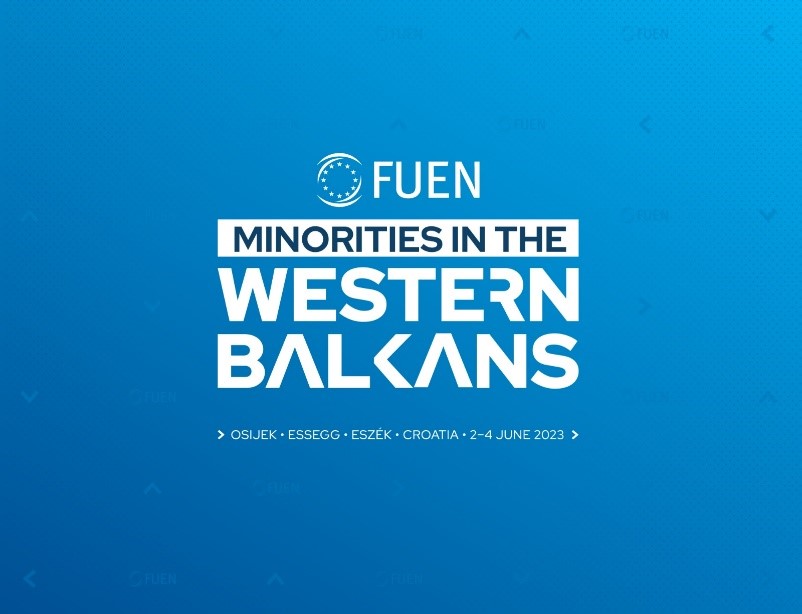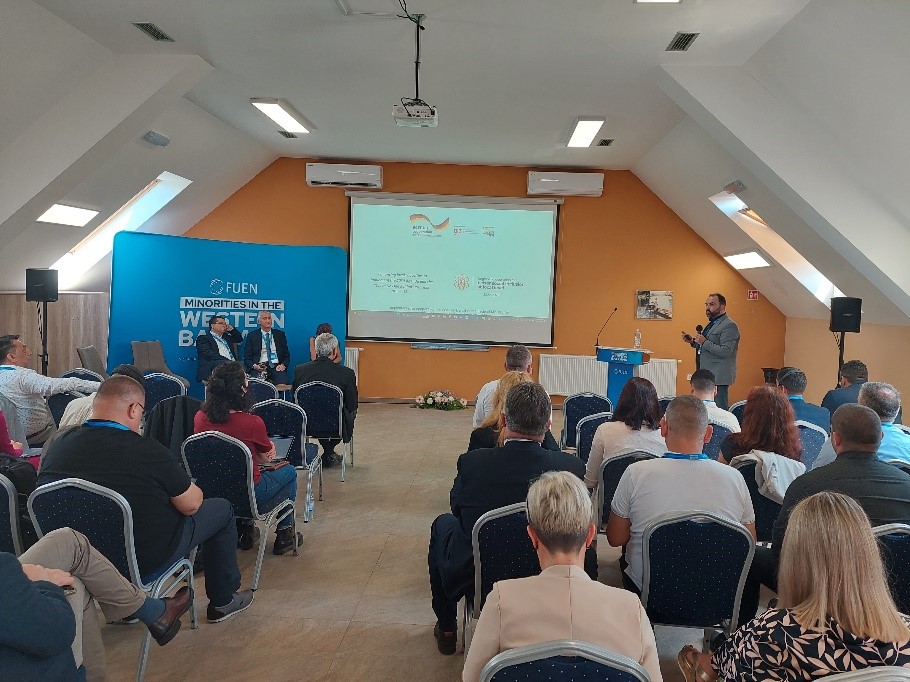
The Minorities in the Western Balkans conference, took place from Friday, 2 June to Sunday, 4 June in Kopačevo·Kopács, near Osijek·Essegg·Eszék, Croatia. The event and was organised by FUEN, the Federal Union of European Nationalities, in cooperation with the Democratic Union of Hungarians of Croatia, the German Society – Organisation of Danube Swabians in Croatia and the Coordination Council and Representatives of the Czech National Minority.
The presence of representatives of 13 minorities from the Western Balkans was considered as a message of encouragement that these minorities are willing to work together to create better rights for all of them, stressed Róbert Jankovics, President of the Democratic Alliance of Hungarians in Croatia in his welcome address.
Commissioner for Neighbourhood and Enlargement Olivér Várhelyi welcomed the initiative to organise a conference on the rights of minority communities in the Western Balkans and to discuss this issue in the framework of EU integration via videoconference. The EU is fully committed to eliminating discrimination based on national, ethnic or religious background, fighting against discrimination is an integral part of the EUs acquis,
Representatives of Czech, Hungarian, Serbian and German minorities, members of minorities in the Croatian Parliament as well as a Croatian MEP stressed the importance of FUEN as following: The main task of FUEN remains and has to remain to maintain and strengthen relations with minority organisations and continue to work for the protection of minorities in Europe, using all instruments at disposal. This statement as well as other recommendations adopted in the Memorandum by the participants of the event.
NALAS was represented by Boran Ivanoski and Joachim Roth in their function of coordinators of NALAS activities related to social inclusion of vulnerable groups in the Western Balkans. Both speakers highlighted the measures implemented since 2019 in cooperation with GIZ in scaling up good practice examples and successful social approaches to strengthen capacities of local government associations, municipalities, civil society organisations and other relevant local stakeholders.

Special emphasis was on sharing the capacity development methodology applied to promote systematic know-how transfer, the online offer available for interested parties on a number of social approaches and evidence-based data derived from social mapping of vulnerable groups in a given territory. Social mapping as such was considered indispensable for a local planning process based on real facts, local policies corresponding to the needs of the identified vulnerable groups (elderly, handicapped, youth, women, Roma, LGTBIT), budget resources assigned according to the needs identified and Local Action Plans to be implemented as efficiently and effective as possible.
Additional info can be found here: https://fuen.org/en/categories/News